Loyalty and Languor
By Mento 5 Comments
Perhaps one of the most natural behavioral phenomenon in our gaming habits is that of loyalty: that we'd be happier to play a sequel or iteration in a series we have experience with because we're acquainted with both the standard of quality of its games as well as having a general sense of what's expected of us in terms of mechanics and controls. Launching into a new game in a series we're already familiar with feels both comfortable and simple, and I don't know about you guys but "comfortable and simple" is often the guiding principle behind anything I elect to spend my free time on. It's possibly why I'm such a shiftless layabout.
Our own Patrick Klepek has often talked about his recent attempts to diversify his playing habits, getting out of ruts and the like by embarking into alien and untested territory, but it's oddly difficult to take that sort of path without a conscious effort. Normally, it feels like, we see a game that's either a direct sequel to something we enjoyed or is so similar as to be worth the gamble and plump for that option rather than risk the unknown. I suppose there's also the factor of choosing a safe bet for our coin; opening our wallets for something new that might be potentially unplayable is not always an enticing prospect.
I've noticed, though, that while the last five games I've chosen to play were due to a certain loyalty I held towards something, though the type of loyalty being exhibited was meaningfully different for each. When I choose new games to play, I'm usually doing so with a background of experience and certain ingrained prejudices. Sometimes I can put all that aside to try something new and exciting, but usually I'm using that background to take educated guesses on what I'll end up liking. That's true, to some extent, for all five of these games:
Tales of the Abyss
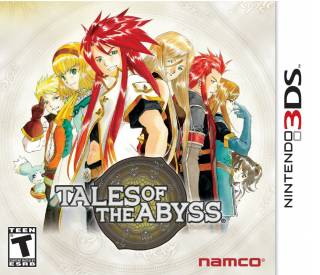
My playing Tales of the Abyss is the quintessential example of what I mean by loyalty to a game series. I've played at least seven of the core games from Namco Bandai's colorful action RPG franchise, which is more than enough to anticipate what one might expect from a Tales game. I chose to play Tales of the Abyss because I knew almost precisely what I was in for, and was already entirely sold on its usual blend of anime monkeyshines and frantic real-time combo-oriented combat before I had even booted it up the first time. This is opposed to the many other JRPGs I have sitting in the backlog, which I decided not to play either because I was less certain of the quality of their content or was simply too lazy to want to bother learning any new tricks. It's very possible that this has something to do with how I often select a new game to play when I'm about two hours away from falling asleep, but that's perhaps a concern for another time.
I probably don't need to write any more in-depth analysis about Tales of the Abyss. That eight thousand word monster blog I wrote a few weeks back is more than sufficient coverage on the matter. I bring it up to point to an example of wanting to play a game in a long-running series I'm familiar with for reasons that might well be as frivolous as wanting to complete every game in the set. I know that's often been the reason I start a new Castlevania or Zelda. I play games like this because I know I'm going to enjoy them too, of course, but with some of these more venerable franchises it's often that you're no longer in it for something surprising and unpredictable. My mind's not going to be expanded by witnessing another group of animes fighting to save the world from a well-intentioned extremist with a mix of impractical weapons, particle effects and moxie, but I'm cool with that.
All in all, though, it's probably best I don't let this become the only deciding factor behind the games I choose to play, because I tend to burn out pretty quickly when that happens.
Zero Escape: Virtue's Last Reward
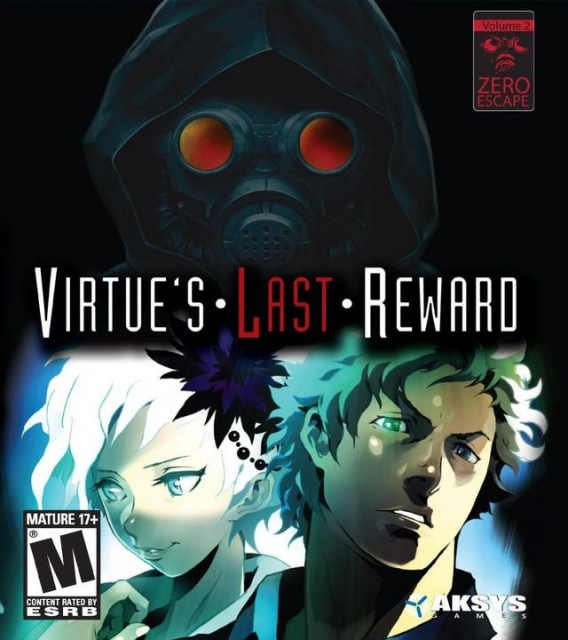
Conversely, I hold very little such loyalty to the Zero Escape series. There's only been two games so far, after all, and Nine Hours, Nine Persons, Nine Doors - as narratively mad and grammatically incorrect as it was - didn't grasp me as being from a series to watch. Rather, my loyalty in this case was to the genre itself; the kind of chiefly Japanese story-driven game that uses a blend of graphic adventure inventory puzzles and visual novel dialogue-focused decision-making. There's a scant few of these in the West, the best known of which is probably the Ace Attorney series and the various games from CING, and I'm eager enough about them to track down any that manage to slip through the culture barrier and see a localization (and, rarer still, a European localization).
I'll admit to some degree of knowing what to expect from Virtue's Last Reward from playing its immediate precursor 999, though the game turned out to be significantly improved compared to the original. Well, at least in a mechanical sense. You could now freely jump between alternate branches in the story without starting over; there was no repetition of the game's "escape the room" puzzles, which cease to be fun once you figure them out once; the game does all the boring math parts of the Nonary Game for you; there's more of an emphasis on following a "bad" ending all the way to its dire conclusion because of the hints (and, in some cases, literal passwords you need to write down) that you'll need elsewhere. While I thoroughly enjoyed VLR, I had no such guarantee that I would have liked it as I had with Tales of the Abyss. It's more that I took a chance based on the type of game it was, rather than knowing precisely what I would be in for. In this particular case, the decision to buy and play VLR was spurred less by loyalty to its series than to a loyalty for a game genre that's sorely under-represented in the West.
Shadowrun Returns: Dragonfall
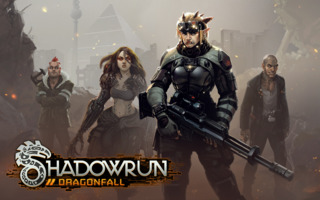
Shadowrun Returns is a rare case where I played the original game and felt there could be a lot of potential further down the line should it see frequent updates and some clever user mods, and this was reflected in a review of mine that rated the game higher than it probably deserved. This is more like a loyalty to a single game than to a series, and it's becoming more common as we see more and more Early Access games on Steam (and, for that matter, a long history of MMOs with all their incremental improvements). We'll buy one of these games, try to see past its present problems to envision the grand product it might one day become, and then subconsciously declare our loyalty to that imagined ideal by coming back to it every so often as the dream edges ever closer to being the reality.
Harebrained Schemes' Shadowrun Returns was never released as an Early Access game, but it was clear from its half-baked and tutorial-heavy built-in quickie campaign that they clearly had future plans for additional campaigns and stories within the same engine. That included campaign, Dead Man's Switch, simply felt like a beginner's guide to both the game and the wider universe/setting it represented. Because Shadowrun - a table-top game that melds fantasy and cyberpunk sci-fi - has a rich and detailed history with around 25 years of constant development, there's a lot of information to introduce to a neophyte shadowrunner and as many RPG systems and glossary terms and quirks to acclimatize them to in equal measure. Dead Man's Switch does an able job of introducing the shamanistic magic system, the Matrix-y cyberspace "decking", the use of drones and summoned elemental spirits and futuristic stim drugs in combat. It teaches you about the setting's history in which our modern world is hit with the sudden and cataclysmic resurgence of magic and learns to adjust, about the corporations that run everything, about the pantheon of new deities and metahuman races that awoke into this new era. But ultimately, the Dead Man's Switch campaign was too short and too perfunctory to be much of a draw back when the game first came out last November.
The Berlin Campaign, which was later renamed Shadowrun Returns: Dragonfall, is the long-anticipated second campaign from the original developers that would not only cut away the no longer necessary slow-burn tutorials and introductions, but would also be enhanced by several months' worth of new additions and tweaks from the design team. It promised a lot, whether directly or implied, and my loyalty to the idea of a Shadowrun game, or really any table-top adaptation, that chooses to focus on delivering module-based content was strong enough to convince me to try it out when it was finally released earlier this year.
Ultimately I was a little underwhelmed in just how minor and scattered the improvements ended up being, but Shadowrun Returns: Dragonfall will not be the last time I buy into a game's lofty ambitions and stick with it. Heck, I've already spent money on several Kickstarters at this point. Maybe that loyalty will be more easily misplaced compared to the loyalty I hold for games that actually exist in their finished form, but I guess time will tell. (I should disclose for fairness's sake that I was bought this game and its expansion ahead of time as a gift, so me playing it and discussing it here is related to an entirely different kind of loyalty in addition.)
South Park: The Stick of Truth
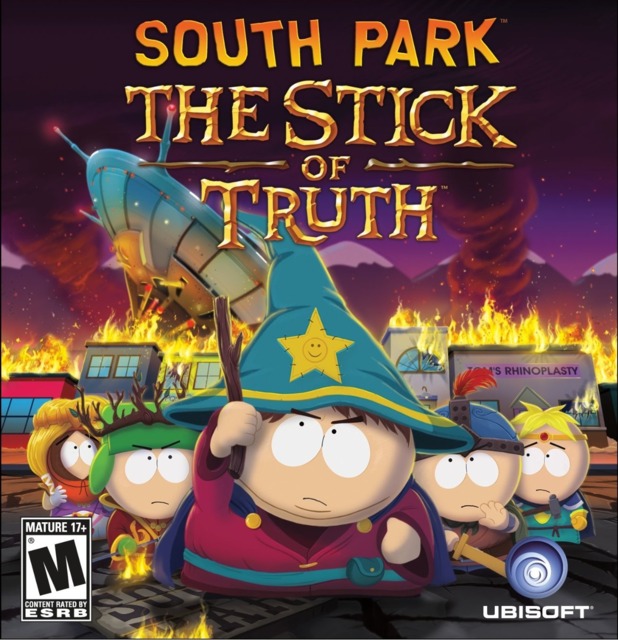
With South Park: The Stick of Truth, there was certainly no loyalty towards other games created under the South Park label. That would be crazy. South Park has had a long and troubled history of video game adaptations, which range from ambitious but flawed attempts to recreate the subversive show to egregious shovelware designed purely to bank on its name and large fanbase for a quick buck.
Still, the new South Park RPG from Obsidian Entertainment promised for a long time to reverse that unfortunate trajectory for South Park video games. The first clear sign that things would be different this time around was the enthusiastic participation of Matt Stone and Trey Parker: the creative leads behind the TV show. The second was their choice of developer in Obsidian - though occasionally criticized for their lack of quality control, Obsidian has been responsible for many of the best RPGs in the past generation of consoles. Fallout: New Vegas and Neverwinter Nights 2: Mask of the Betrayer are regarded as some of the better CRPGs to come out in recent memory, and Alpha Protocol has plenty of admirers as well (don't pay any mind to all this effusive Obsidian praise by the way, it's just Rorie's my boss is all).
The Stick of Truth ended up not disappointing. It's easily one of my favorite games to be released this year, and not only does an incredible job at recreating the look, feel and sensibility of the show but crafts a very playable turn-based RPG at the core of it all that recalls something like the deceptively strategic (and similarly trigger-enhanced) Paper Mario/Mario & Luigi RPGs. The game was created by evident fans of the series, featuring an endless conga line of references and in-jokes I'm sure even the showrunners had long forgotten about, and there's very little holding back on some of the more fucked up conceits the show's creators have probably toyed with at one point or another. It seems as if Matt and Trey excel rather than falter whenever they're faced with a new medium to play with - just look at how well the big budget South Park movie turned out, despite worries that it would just end up being a longer and more expensive episode of the show (looking at you, Futurama movies) - and South Park: The Stick of Truth might well be the best South Park related product for years, including recent seasons of the TV show.
In this case, the loyalty was to the show, its creators and to the developers, rather than (and really in spite of) earlier games from this franchise. And to think, we might've moved away from this last generation of consoles with that tower defense game and Tenorman's Revenge as the only South Park video game portrayals. Shudder.
Persona 4 Arena
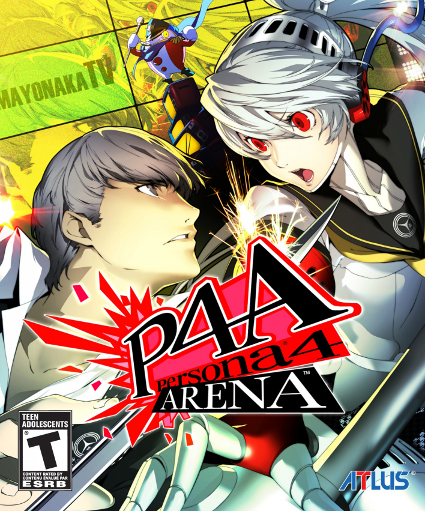
Finally, we come to the game I'm currently playing. My loyalty in this particular situation is to the original Shin Megami Tensei: Persona 4 which introduced Yu Narukami Charlie Tunoku, Chie Satonaka, Yosuke Hanamura, Kanji Tatsumi, those three other chicks and that monkey bear thing. Subsequently, my decision to play Persona 4 Arena has very little to do with Arc System Works and their various series of incomprehensible twitch-gameplay fighters. I have no idea what a guilty gear is, or why the blaz is blue, but I am so on board for watching all these sassy teens go on further adventures and continue to bounce off one another. It takes a fantastic story and cast to make me really depressed about finishing a game, and by the end of Persona 4 I was practically bawling because it meant the end of my interaction with all these wonderful characters. Make no mistake: I can be the wussiest wuss that ever wussed when it comes to this sort of thing, especially where my anime highschool buddies are concerned.
While I've yet to become enamored with P4A's combat - I don't think a single imparted rule of the tutorial lessons has stuck with me, besides which of the four attack buttons makes a Persona appear and which do not - I'm enjoying the goofy plot of a resurrected Midnight Channel that is forcing this group of friends to throw down against one another with insulting marquee banners and illusionary passive-aggressiveness, despite them all feeling assured that the TV World Murderer case has long been put to rest. it's also weird hearing Yu's voice (he's played by Adachi's VA Johnny Yong Bosch, which is true of the original game as well even if his dialogue was limited to the occasional grunt and yelp) and weirder still to see how the few featured members of Persona 3's cast have matured in the three years since the events of their game. I'm definitely enjoying all the parts where I'm not fighting, that's for sure.
So, in summary, we have:
- A game from a series I'm intimately familiar with, which held very few surprises but was still an enjoyable experience all the same, if largely in a comfort food sort of manner. I feel unreasonably happy that there's a big list of Tales games out there that I can tick another entry off of, as odd as that might sound from a fan of the series. Darn obsessive completionist tendencies.
- A game from a sub-genre that I appreciate, even though (or perhaps especially because) they're thin on the ground. See also: SpaceWhippers, Pikmin-esque team strategy-puzzle games, whatever you'd call Dark Cloud (dungeon crawler slash building sim?). I'd probably buy any game that exhibited any of those genre traits, even if I didn't much care for its other aspects.
- An expansion for a game I had high hopes for after playing its original content, and was slightly sorry to see that it had yet to realise its full potential. Still, this may well blossom into purchasing a second Shadowrun game should Harebrained Schemes find a way to procure funding for a new and improved engine.
- A game that - going by previous trends - I should've stayed the hell away from, but gave a chance anyway because of the pedigree of its source material and its development team. A game that ended up being the best one on this list, by the by.
- A game that is a pseudo-sequel to a game I really enjoyed, despite knowing full well that I wouldn't be too into its gameplay.
Each of these decisions was spurred by a loyalty to someone or something, and a sense that I would get some degree of satisfaction out of it based on their reputations and my experience with their predecessors. It's hard for an original game to ask for a lot of faith from a prospective audience who don't yet know it from Adam, and harder still when so many purchasing decisions are derived from familiarity and loyalty, even if we get there from a multitude of directions.
I'm thinking after P4A is done I might dig into my Steam folder and try a few games where I have no idea what to expect. I don't mind if my gaming gets a mite habitual once in a while, but it takes some introspection like this to recognize the little hole I've dug for myself for what it is.
So, how many game purchasing decisions have you guys made so far this year that weren't based on prior experience with either a game's series, its developers, a fondness for the source material it was based on or any other similar determining factors? Has Giant Bomb helped you to discover new games you might have never given a second glance to, or just helped you decide on games you were already certain you'd like for one reason or another?
